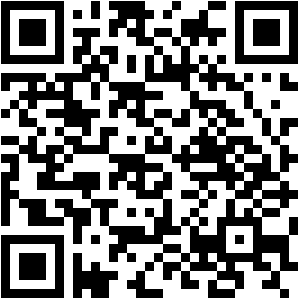Kuliah Lapangan Terpadu Berbasis Inkuiri untuk Meningkatkan Penguasaan Konsep Mahasiswa Pendidikan Biologi
DOI:
https://doi.org/10.23969/biosfer.v2i2.854Keywords:
Kuliah lapangan terpadu, penguasaan konsepAbstract
Kuliah lapangan merupakan pengalaman belajar penting bagi mahasiswa calon guru biologi. Tujuan dari penelitian ini adalah untuk mengetahui peningkatan penguasaan konsep mahasiswa melalui pengalaman belajar kuliah lapangan terpadu berbasis inkuiri. Subjek penelitian dalam penelitian ini adalah mahasiswa calon guru biologi di salah satu iniversitas swasta di kota Bandung (n=30). Instrumen yang digunakan dalam penelitian ini adalah tes penguasaan konsep. Metodologi penelitian yang digunakan dalam penelitian ini adalah metode kuasi ekperimen dengan desain one group postes postes design. Hasil penelitian menunjukan bahwa implementasi pengalaman belajar kuliah lapangan terpadu berbasis inkuiri dapat meningkatkan penguasaan konsep mahasiswa calon guru biologi (N-gain=0,62). Pengalaman belajar melalui kuliah lapangan terpadu berbasis inkuiri dapat membantu mahasiswa meningkatkan penguasaan konsepnya.
Downloads
References
Arikunto, Suharsimi. (2002). Metodologi Penelitian. Jakarta : PT. Rineka Cipta.
Behrendt, M. Dan Franklin, T. (2014). A Review of research on school field trips and their value in education. International Journal of Environmental & Science Education, 9, 235-245
Falk, J. H., Martin, W. W., & Balling, J. D. (1978). The novel field trip phenomenon: Adjustment to novel settings interferes with task learning. Journal of Research in Science Teaching,15(2), 127–134
Hattie, J., Marsh, H. W., Neill, J. T., & Richards, G. E. (1997). Adventure education andOutward Bound: Out-of-class experiences that make a lasting difference. Review of Educational Researcher, 67, 43-87.
Hofstein, A and Orion, N. (1991) Factors which influence learningability duringa scientific field trip ina natural environment. The Department of Science Teaching Weizmann Institute of Science, Israel. A paper presented at the NARST 1991 conference,The Abbey, Fontana, Wisconsin, U.S.A.
Hudak, P. (2003). Campus field exercises for introductory geoscience courses. Journal of Geography, 102(5), 220-225
Hutson, T., Cooper, S., & Talbert, T. (2011). Describing connections between science content and future careers: Implementing Texas curriculum for rural at-risk high school students using purposefully-designed field trips. Rural Educator,31,37-47
Kisiel, J.,(2006). An Examination of Fieldtrip Strategies and Their Implementation Within a Natural Hystory Museum, Science Education ed. 90 :434-452.
Mawdsley. R. D. (1999). Legal issues involving fieldtrips. School Business Affairs, 65(9), 28-31
Michie, M. (1998). Factors influencing secondary science teachers to organise and conduct field trips. Australian Science Teacher’s Journal, 44, 43–50
Nabors, M.L., Edwards, L.C., & Murray, R.K. (2009). Making the case for field trips:What research tells us and what site coordinators have to say. Education 129(4), 661-667.
Nadelson, L., & Jordan, J. (2012). Student attitudes toward and recall of outside day: An environmental science field trip. Journal of Educational Research, 105(3), 220-231
National Research Council (2009). Learning science in informal environments: People, places, and pursuits. Washington, DC: The National Academies Press
Orion, N. and Hofstein, A. (1991) Factors which influence learningability duringa scientific field trip ina natural environment. The Department of Science Teaching Weizmann Institute of Science, Israel. A paper presented at the NARST 1991 conference,The Abbey, Fontana, Wisconsin, U.S.A.
Patrick,A.O., (2010). Effect of Field Study on Learning Outcome in Biology, J.Hum.Ecol.,31/33:171-177.
Sa’ud, U.S. dan Rukmana, A. (2006). Pembelajaran Terpadu. Bandung: UPI Press
Scarce, R. (1997). Field trips as short term experiential education. Teaching Sociology, 25, 219–226.
Schaal, S., Bogner F.X., & Girwidz, R. (2010). Concept Mapping Assessment of Media Assisted Learning in Interdisciplinary Science Education. Research In Science Education, 40(3):pp 339-352
Scribner-MacLean, M., & Kennedy, L. (2007). More than just a day away from school: Planning a great science field trip. Science Scope, 30(5), 57-60

























